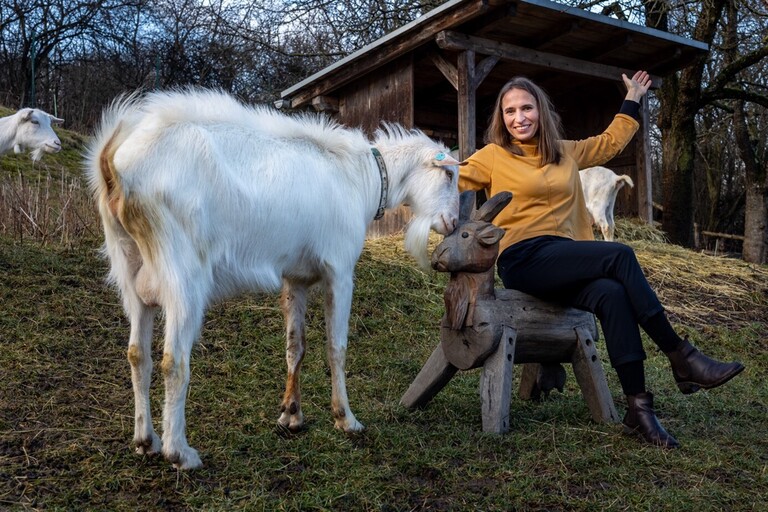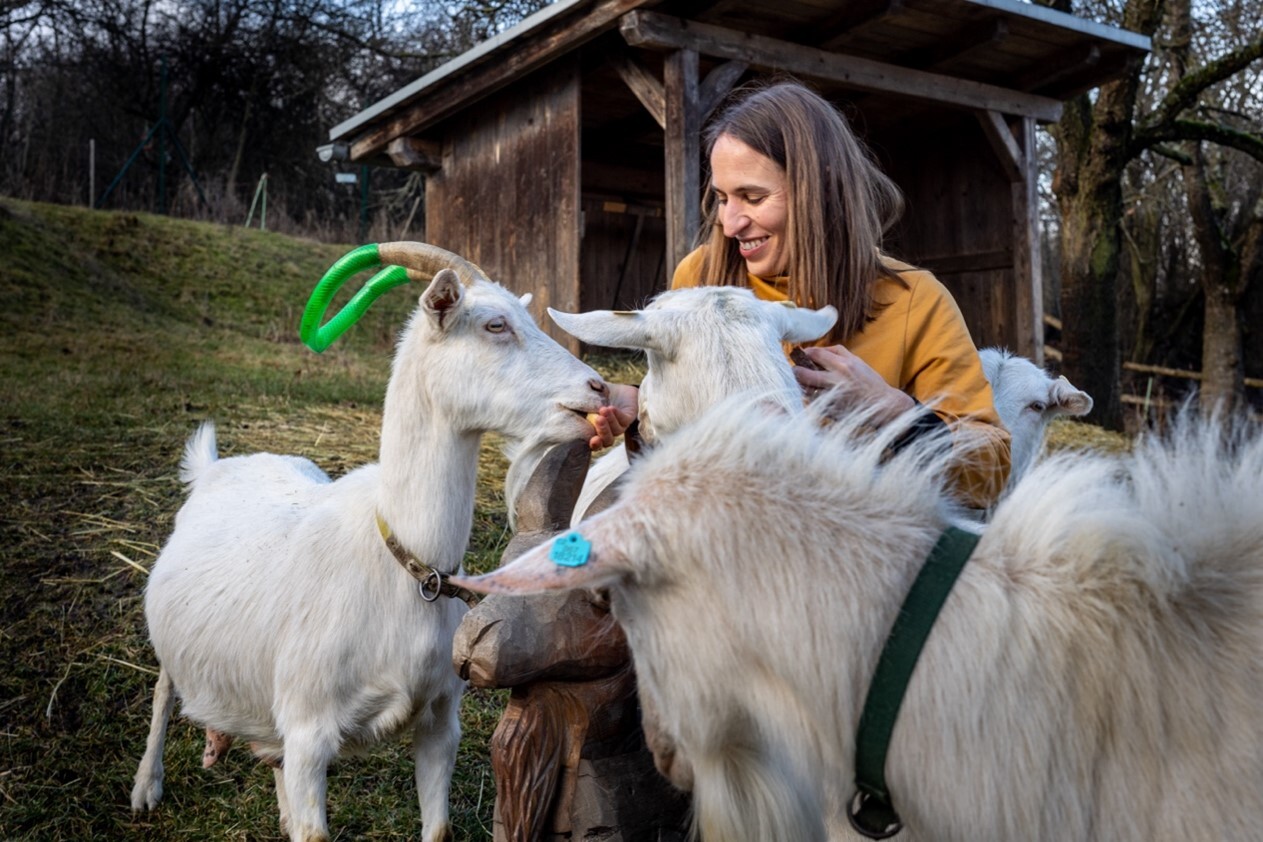When the crops are not the only thing that matters
Eliška Hudcová graduated from the Protestant Theological Faculty of Charles University and the Faculty of Humanities of Charles University, where she also completed her PhD in Civil Sector Studies. In her dissertation she worked on the development of social farming in the Czech Republic in relation to social economy, social entrepreneurship and social inclusion in rural areas.
She is a member of the Social Farming Working Committee at the Ministry of Agriculture and a founding member of the Social Farming Association. She works as a debt counsellor at the People in Need organisation and teaches at the Protestant Theological Faculty. She and her husband are raising five children.
Social farming, what is that? This is a question that Eliška Hudcová from the Protestant Theological Faculty of Charles University still hears quite often. The concept that links farming with social work is not yet well established in the Czech Republic. Social farming also goes hand in hand with sustainability. Those who care about people are usually also interested in the state of the landscape, nature and the land they farm and want to preserve for future generations.
Eliška Hudcová first encountered the concept of social farming through her brother. He raises sheep and has an orchard on a small farm in western Bohemia. When he joined an international Leonardo da Vinci project on the topic of multifunctional farming 14 years ago, he noticed the concept of social farming among his Italian colleagues. It had been unknown in this country until then, although some local farms were already operating in a very similar manner.
Of course, Eliška used to spend (and still spends) a lot of her time on the farm and she was so captivated by the topic that she began to study it as part of her Pastoral and Social Work programme at the Protestant Theological Faculty. Later, she elaborated on the topic in her dissertation at the Faculty of Humanities, where she focused on the field of Civic Sector Studies. Today, as a member of the Department of Social Work and the Department of Practical Theology of the Protestant Theological Faculty, she lectures on it and popularizes it.
The purpose of social farming is to integrate people with health and social disadvantages into society by employing them on farms, providing social services, and therapeutic stays. “Social farming creates opportunities for people with all kinds of disadvantages who need some form of support to integrate into society and improve their lives. A social farm, or a rural farming environment, become tools for integration, an environment from which people can draw the benefits it offers,” she explained.
Bringing life back to the countryside
Farms that engage in social work often also help educate children and generally contribute to strengthening people’s relationship with nature, the landscape and the countryside. They strive to bring life back to these environments and help build strong local communities.
“I am not only a theoretician. I also work in direct debt counselling, so I know what it’s like to talk to people in various difficult life situations. In many cases, I can see how much they would benefit from simply going out, changing their environment. People can often find sheltered jobs as security guards, watching supermarkets, for example, or you can find a job assembling some meaningless parts, which is routine and monotonous work in a closed, stressful environment. It would be far better if farms could offer more jobs for those in need,” says Eliška Hudcová, who also works for the People in Need non-profit organisation.
Even though there are already dozens of farms in the Czech Republic that do social work in addition to the agricultural work, the concept is still now widely known. That is why they are trying to popularize it through lectures at secondary schools, for example. Currently, Eliška is also in contact with colleagues from the Czech Agricultural University (ČZU) and they are trying to figure out how to link social work taught at the Protestant Theological Faculty with animal rehabilitation courses taught at the ČZU.
Social farming is closely linked with a concept called “green care”. It is often mentioned that nature is important for people’s well-being, but that is a bit of a one-way process. People shouldn’t only think about themselves and what they are gaining from this. They should give back to the next generation. The green care concept deals with how people encounter nature; it should be a healing and therapeutic process that is planned, reflected and evaluated. It can take on various forms, such as therapeutic gardening or garden therapy. It could be doing some exercise outdoors or doing some social farming. Lately, forest baths have become an increasingly popular form of therapy that has come to us from Japan. The important part is always the reciprocity,” she added.
This is why environmental considerations are often also important to social entrepreneurs. They manage their farms sustainably with a view to preserving the land and nature for future generations.
“Although not all social farms in the Czech Republic operate on an organic basis, they do make sure that biodiversity is maintained, and water is kept in the landscape. They give careful thought to tending the land, and what should be planted where. The common value base is: the land that we care for was given to us, it is a gift. We are to treat it with due care, like responsible farmers, who will pass it on to the future generations in good condition.”

